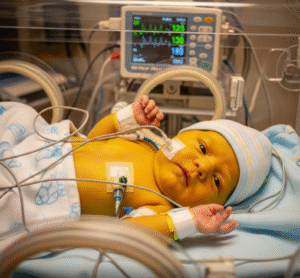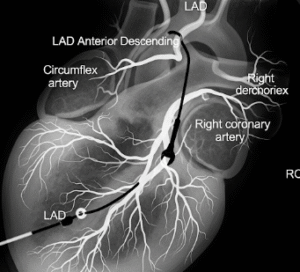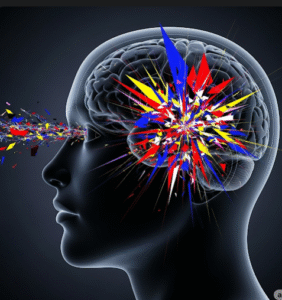Overview
Lightheadedness is a sensation of dizziness or feeling faint, often described as feeling “woozy,” “floating,” or “about to pass out.” Unlike vertigo, which is a spinning sensation, lightheadedness usually relates to reduced blood flow to the brain, low blood pressure, or metabolic changes.
In Korea, hospitals and clinics provide comprehensive evaluation and treatment for lightheadedness, particularly when it is frequent, severe, or accompanied by other concerning symptoms. Prompt assessment can help identify underlying causes such as cardiovascular, neurological, or metabolic disorders, and prevent potential complications.
Key Facts
- ➔ Lightheadedness can be temporary or recurrent, depending on the underlying cause.
- ➔ It is different from vertigo, which causes a spinning sensation.
- ➔ Common triggers include dehydration, low blood sugar, sudden standing, medications, or stress.
- ➔ Persistent lightheadedness may indicate heart problems, anemia, or neurological disorders.
- ➔ In Korea, specialized clinics offer diagnostic tests, medical treatment, and lifestyle counseling to manage and prevent episodes.
What is Lightheadedness?
Lightheadedness is a feeling of near-fainting or unsteadiness, caused by temporary changes in blood pressure, blood flow, or oxygen supply to the brain:
- ➔ Symptoms: Feeling woozy, unsteady, or as if the head is “light”
- ➔ Duration: Can last seconds, minutes, or longer depending on cause
- ➔ Clinical significance: While occasional lightheadedness may be benign, persistent or severe episodes may signal cardiovascular, neurological, or metabolic disorders
- ➔ Related conditions: Syncope (fainting), hypotension (low blood pressure), dehydration, anemia, or inner ear problems
What Symptoms Are Related To
Lightheadedness may present alongside various symptoms:
- ➔ Blurred vision or visual disturbances
- ➔ Nausea or vomiting
- ➔ Sweating, palpitations, or rapid heartbeat
- ➔ Shortness of breath or chest discomfort
- ➔ Weakness or fatigue
- ➔ Confusion, disorientation, or fainting
- ➔ Tinnitus or ringing in the ears if related to inner ear problems
These associated symptoms help clinicians identify whether the lightheadedness is benign or a sign of a more serious condition.
What Causes / Possible Causes
Lightheadedness can result from a wide variety of causes:
- ➔ Cardiovascular causes: Low blood pressure, arrhythmias, heart attack, or heart failure
- ➔ Neurological causes: Stroke, transient ischemic attack (TIA), migraine, or vestibular disorders
- ➔ Metabolic causes: Low blood sugar (hypoglycemia), dehydration, anemia, or electrolyte imbalance
- ➔ Medication-related causes: Diuretics, antihypertensives, or sedatives
- ➔ Psychological causes: Anxiety, panic attacks, or hyperventilation
- ➔ Positional changes: Orthostatic hypotension caused by standing up too quickly
- ➔ Other causes: Overheating, infection, or excessive alcohol consumption
Identifying the specific cause is crucial for targeted treatment and prevention of complications.
When Should I See My Doctor
Seek medical attention if you experience:
- ➔ Lightheadedness that is persistent, worsening, or recurrent
- ➔ Accompanied by chest pain, shortness of breath, or palpitations
- ➔ Associated with fainting, severe headache, weakness, or numbness
- ➔ Occurring with confusion, difficulty speaking, or vision changes
- ➔ After head trauma or sudden onset without clear explanation
- ➔ Lightheadedness affecting your ability to perform daily activities safely
Early evaluation allows timely diagnosis and treatment of potentially serious causes.
Care and Treatment
Treatment of lightheadedness depends on the underlying cause:
- ➔ Hydration and nutrition: Ensuring adequate fluid intake and balanced diet to prevent dehydration or low blood sugar
- ➔ Medication review: Adjusting drugs that may contribute to low blood pressure or dizziness
- ➔ Lifestyle adjustments: Avoiding sudden postural changes, practicing slow standing, and maintaining physical fitness
- ➔ Cardiovascular management: Treating arrhythmias, heart failure, or hypotension as advised by a cardiologist
- ➔ Neurological care: Assessment and treatment for migraines, vestibular disorders, or neurological deficits
- ➔ Psychological interventions: Stress management, counseling, or therapy for anxiety-induced lightheadedness
- ➔ Monitoring: Keeping track of episodes, triggers, and related symptoms to guide treatment
Most cases improve with lifestyle modification, hydration, and treatment of underlying causes.
Treatment Options in Korea
Korean hospitals provide specialized services for patients experiencing lightheadedness:
- ➔ Diagnostic evaluations: Blood tests, ECG, echocardiography, brain imaging (MRI or CT), and vestibular function tests
- ➔ Specialist consultations: Cardiologists, neurologists, ENT specialists, and general physicians
- ➔ Medical therapy: Medications to treat underlying cardiovascular, metabolic, or neurological causes
- ➔ Lifestyle counseling: Guidance on diet, hydration, exercise, and positional safety
- ➔ Rehabilitation programs: Physical therapy for balance training and prevention of falls
- ➔ Multidisciplinary approach: Integrated care for complex cases involving cardiovascular, neurological, or psychological factors
- ➔ Leading hospitals: Seoul National University Hospital, Asan Medical Center, and Samsung Medical Center provide advanced diagnostics, personalized treatment, and follow-up care
In Summary: Lightheadedness is a common symptom with a wide range of causes, from minor dehydration to serious cardiovascular or neurological conditions. Timely evaluation and treatment in Korea can relieve symptoms, prevent complications, and address underlying health issues.
- ➔ Key Takeaway: Persistent or severe lightheadedness should not be ignored and warrants medical evaluation.
- ➔ Action Point: Consult healthcare specialists for diagnosis, treatment, and preventive strategies to maintain safety and well-being.













